
Sneak Preview of our biggest zoo project ever
PUBLISHED 21/03/24
Drusillas Reveals Sneak Preview of £500k New Habitat for Colobus Monkey Troop
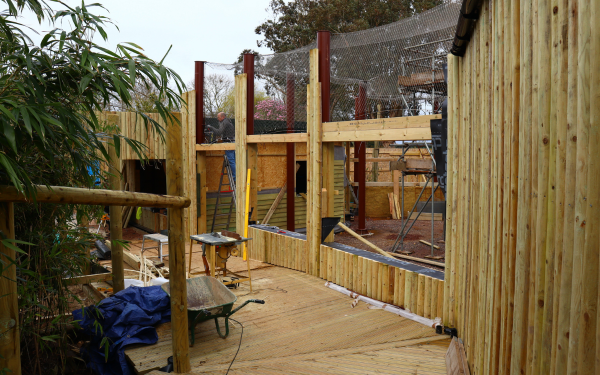
Nestled against the dramatic backdrop of the rolling Sussex Downs, Drusillas Park’s most ambitious project to date is starting to take shape: a half a million-pound, state-of-the-art jungle-themed habitat for the zoo’s colobus monkeys.
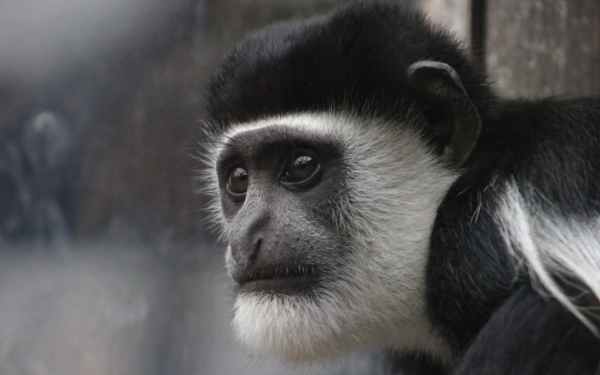
Custom designed and built for the lively troop, this exciting space represents Drusillas’ largest investment yet in animal habitats. The new area will provide a naturalistic, enriching home for the colobus, alongside promoting conservation and responsible ecotourism.
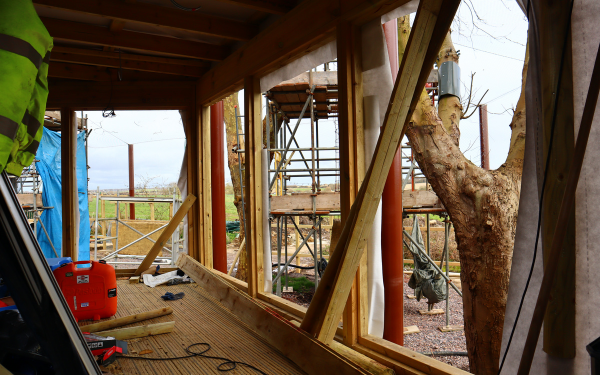
After a year of careful planning, work began on the project in September 2023 on the site of the former wallaby and agouti habitats. Since then, the expert team at the park, along with specially selected industry experts, have been very busy behind the blue hoarding, battling against the elements to make progress creating this truly one-of-a-kind space.
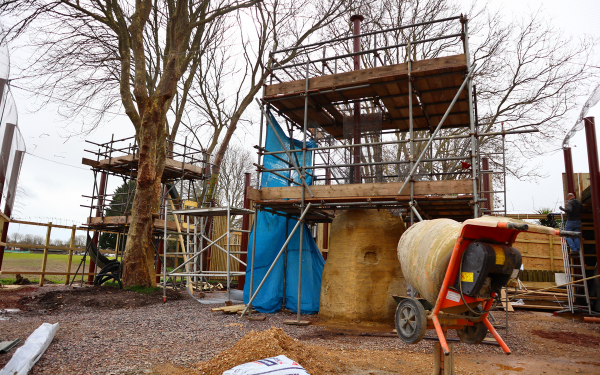
Every aspect of the new colobus home has been carefully researched and considered, with a strong focus on best practice in animal welfare. This innovative habitat aims to offer the animals a wide variety of choice and activities, and an experience as close to their natural environment as possible. To help create a stimulating environment there are both custom built enrichment features to encourage natural foraging behaviour, and bespoke branch climbing structures, for the lively primates to swing, hang, rest, and play on.
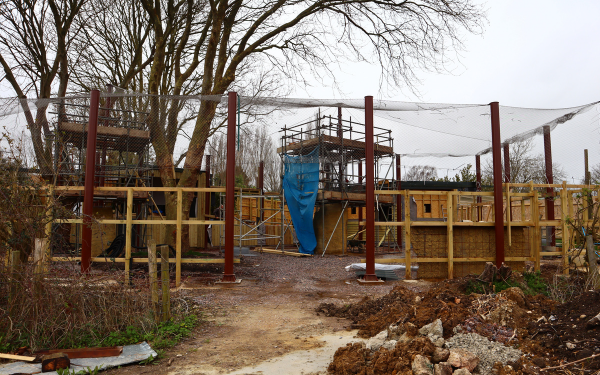
Much like Drusillas lynx home completed last year, the colobus will enjoy a beautiful waterfall feature, with a tiered, multi-level terrace, where the colobus can interact and cool off in the warmer summer months. Running water offers several benefits for animals including bathing, drinking, and playing in the water itself, as well as the humidity it offers, and a ‘white noise’ soothing effect that helps the animals feel calm and relaxed.
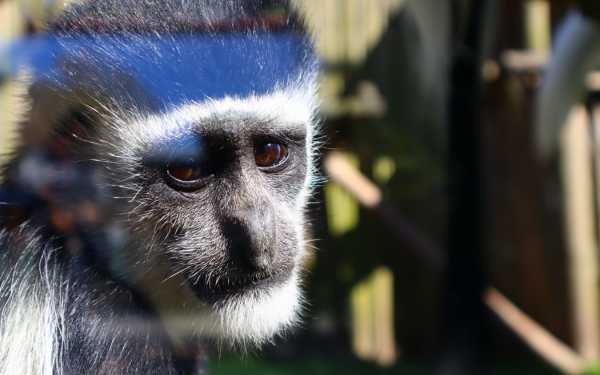
Bespoke, hand-carved rockwork will provide the cheeky monkey gang with endless nooks and crannies for climbing, resting, and hiding. There is even a custom-built heated tree in the centre of the enclosure, to give the monkeys another place to keep cosy and comfortable when the coldest weather hits. Plus, a hand painted mural, to add interest and colour and increase the lush, green, ‘jungle’ feel of the new habitat.
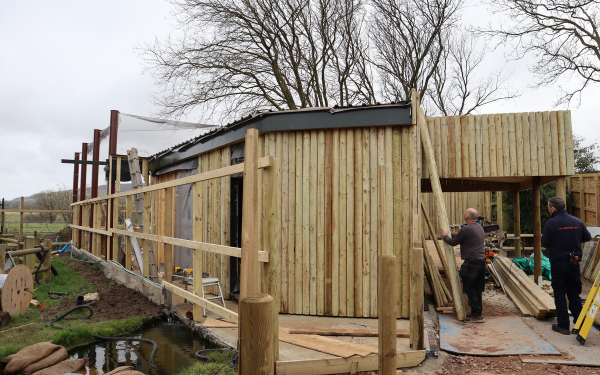
Tree top viewing platforms will offer visitors to the park unparalleled opportunities to observe the colobus and provide a unique insight into the behaviour and habits of the troop of eight. Drusillas will also be installing CCTV in all areas of the habitat to monitor behaviour such as feeding and breeding, to facilitate the zoo’s research and conservation work with other zoos and zoo associations around the world.
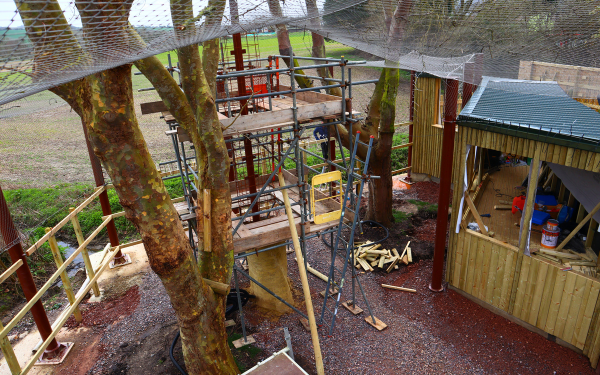
The unique new habitat will also incorporate a series of jungle-style themed huts, currently being built along the perimeter of the space. The huts are intended to resemble kiosks in the colobus native country Africa, where locals sell goods before tourists are taken on eco tours. As well as providing an additional source of enrichment for the monkeys to explore and investigate, the huts have been included in the habitat design to promote responsible ecotourism.
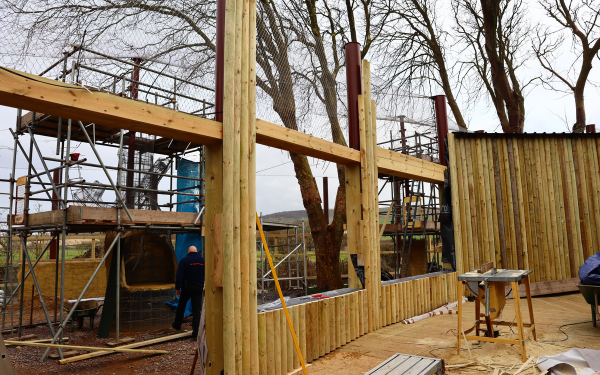
The focus on ecotourism was important to Drusillas due to their new partnership with Colobus Conservation, who provide eco-tours to visitors and locals to support the Angloan Colobus monkeys in the Diani region. Established in 1997, the charity was created in response to the high number of deaths of colobus monkeys on the Diani Beach road. Over the last 25 years, Colobus Conservation have done some incredible work promoting the conservation, preservation, and protection of Colobus monkeys and their coastal forest habitat.
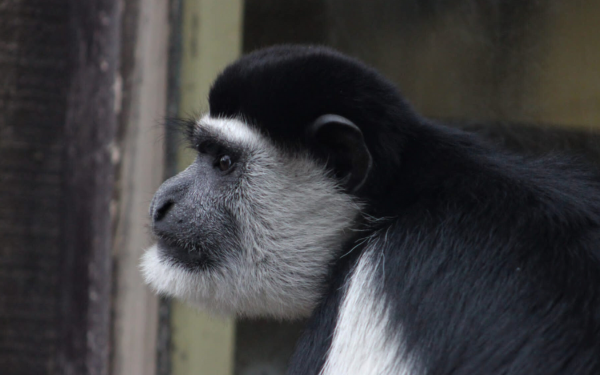
Drusillas hope is that alongside creating a wonderful new environment for the colobus monkeys to live in, they can also raise funds and increase awareness about the essential work charities do to help conserve wildlife. They also hope to provide human resources out in Kenya, so the zoo’s keepers get the chance to see Colobus Conservation's amazing work in person.




